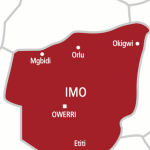Despite being in season, the prices of tomatoes and peppers in northern Nigeria continue to soar, causing significant distress among residents. This surge has persisted even after the Eid-il-Kabir celebrations, with many struggling to afford these essential commodities.
In Lafia, the Nasarawa State capital, residents are urging the Federal Government to address the escalating prices. Halima Musa, a local housewife, noted that a big basket of tomatoes, which cost N17,000 in January, now sells for N65,000, while a bag of pepper has risen from N10,000 to N52,000. Joy Abraham, another resident, mentioned that she has resorted to using sachet tomatoes due to the high prices of fresh produce. A small painter bucket of tomatoes, previously sold for N1,000 to N1,500, now costs between N8,000 and N10,000.
Traders like Yakubu Ibrahim, who deals in tomatoes and peppers at the Lafia market, explained that the high prices are not their fault. He stated that they purchase these items from other states and sell them at similar prices, considering the hardships faced by their fellow citizens.
In Lokoja, Kogi State, a dustbin basket of tomatoes sells for N11,000, while a big basket costs between N100,000 and N120,000. Ibrahim Yusuf, a trader, confirmed these prices post-Eid, noting that they are likely to increase further. Similarly, Ilyasu Baba, who sells onions, reported that a full dustbin basket goes for N3,500, and a full bag for N70,000.
The situation is equally dire in Adamawa State, where fresh tomatoes and peppers are now out of reach for many families and local eateries. Traders attribute the high costs to the expensive transportation of these commodities and ongoing insecurity in some regions. Hassan Umar, a trader, mentioned that a bag of fresh tomatoes now costs ₦120,000, while a basket of large red peppers goes for ₦55,000.
In Jalingo, Taraba State, residents are also lamenting the sharp rise in prices. Hadjia Aisha Musa, a tomato seller, cited poor weather conditions and transportation issues as key factors. Tomatoes that previously sold for N200 now cost about N500, and pepper has increased from N150 to N400 per unit measure.
Consumers in Minna, Niger State, report unprecedented prices for these perishable items. Toyin Alabi, a housewife, mentioned that she no longer buys tomatoes and peppers from the market due to the high costs. A small measure of tomatoes now sells for N1,000, compared to the previous N250 to N300.
In Sokoto State, the situation is similarly bleak. A basket of tomatoes now costs between N90,000 and N100,000, compared to less than N30,000 just two months ago. Mallam Usman Aliyu, a trader, highlighted that a bag of pepper, previously sold for N60,000, now costs about N150,000.
Residents in Gombe have resorted to using dried tomatoes and peppers due to the high prices of fresh produce. Doris Markus and Laraba Joshua mentioned that they use dried tomatoes to make their meals more substantial.
In Kaduna State, the prices have also surged dramatically. Mrs. Gladys Akpojiyovwi, a housewife, reported that a basket of tomatoes now sells for between N100,000 and N150,000, compared to N30,000 to N45,000 earlier in the year. Traders in the state attribute the price hike to the outbreak of a disease known as ‘Sharon’ and high transportation costs due to extortion at numerous roadblocks.
Abubakar Jibrin, a trader, emphasized that the high costs are not solely due to traders but are also influenced by the need to travel to other states to purchase the items. He mentioned that a basket of tomatoes now sells for ₦20,000, and a small measure costs between N1,000 and N1,500.
The situation is exacerbated by alleged extortion by security personnel and local council touts at various roadblocks, particularly at night. Mallam Bashir Rabe Abubakar, a major dealer, explained that the cost of transporting tomatoes and peppers is significantly increased by these bribes, leading to higher prices for consumers.
As northern Nigeria grapples with these soaring prices, residents and traders alike are calling for urgent government intervention to stabilize the market and make these essential commodities affordable once again.







2 Comments